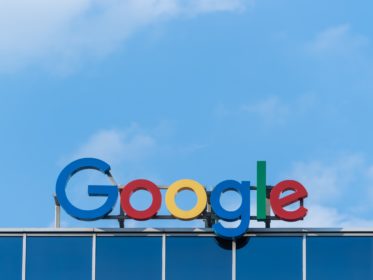Update: May 2024
I wrote this piece in 2014, when Google was still relatively stable. Today, I barely recognize the company or its search engine. In fact, I no longer use it, having made the switch to the privacy-based Brave browser and DuckDuckGo several years ago.
With the addition of AI, all the shopping elements, and the emphasis on promoting content written to the algorithm, the information Google presents for a search query is basically crap.
For example, doing a search for a topic relating to German Shepherds, I can find 10 or more articles, all formatted the same way and saying the same thing.
To make matters worse, smaller companies struggle to appear for Organic against bigger brands with bucks. The reason I taught myself Google Ads (or pay-per-click) was because I could no longer get traction with Organic.
But even with Ads, it’s difficult to gain ROI if you’re a small manufacturer with a small spend. And don’t get me started on the constant changes and updates.
I often hear myself saying, “There’s no way a small business owner can handle or even learn all this stuff. It’s way too technical and time consuming.”
Now my son is helping me with our clients’ Ads accounts and his initial response was, “Mom, the recommendations the machine is giving you are crap!” Yes, indeed. Welcome to my world.
So this piece is more relevant than ever.
Like everyone associated with the Web and Internet marketing, I’ve kept a close eye on what Google is doing. Although I haven’t had to adjust my online marketing strategy too much with regard to Google’s changes, I’m beginning to see that with all these changes, relying on Google to bring me business is becoming a risky endeavor at best.
A quick glance at my own Google Analytics showed that for 2013, 88% of traffic from new visits came from search.
That’s when I sat up and said, “Wait a minute, what if Google changes the game and what I’m doing no longer works? Even worse, what if Google goes away?”
That fear isn’t as far-fetched as it sounds. Google’s Matt Cutts stated in his PubCon 2013 keynote that Google’s mission is to organize the world’s information. He added, “The words ‘search engine’ do not appear in our mission statement.”
TINSTAAFL (There’s no such thing as a free lunch)

Relying on Google to send you business is like being a seagull waiting for the nice old lady to come by on her daily walk. She reaches into her plastic shopping bag and pulls out old bread crusts — flinging them into the air. The seagulls cry and dive for the crusts.
The seagulls come to rely on the old lady. She’s like clockwork. Each day she comes with her crusts, and each day the seagulls gobble them down.
One day the lady doesn’t come by. She died.
The seagulls now have to find another food source.
For the seagull, this may be relatively easy. They have an entire ocean. And, maybe another old lady will come by with her bread crusts.
But for owners of small businesses who have come to rely on Google and its free lunch in the form of search traffic, it’s heart attack city.
The party is over.
Real conversation
Prospect: “We’ve been number one on Google for years. Now we’re slipping. And traffic is down. Way down.”
Me: “When was the last time you updated your website?”
Prospect: [silence]
Me: “You still there?”
Prospect: “Yes. I’m trying to remember. Maybe back in 2008 or something like that.”
Matt Cutts: “Companies with older websites have to adapt or die.” [source]
Life before Google
I started thinking back to when Google didn’t exist. My marketing assets consisted of my e-newsletter database (I started off with 75 subscribers — woohoo!) and my Website — to which I spent a great deal of time and effort driving traffic.
- I was active in three different organizations and attended networking functions regularly in order to meet people. I used to hand out free reports and things.
- I spoke at these organizations whenever they asked. At the end, I’d give people a free report in exchange for signing up for my newsletter.
- I developed reports and things and then would pitch my colleagues to either post the report in their e-newsletters or have me write an article for their newsletter. I’d then include a link back to the report and my own e-newsletter.
- I sent out direct mail letters promoting my free reports, my newsletter, and my services.
- I sent out a print newsletter.
- I wrote articles for industry publications.
- I advertised.
- I took people out to lunch.
Most of these tactics worked. The stuff that didn’t work, I eliminated. Once Google came on the scene, and then social media, I stopped doing many of the tactics on which I had come to rely.
Google made it too easy. Create some content, optimize it, and watch traffic and inquiries roll in. I could do this in my sleep.
Traditional marketing is the new black
In a podcast I did with Ed Gandia, “Understanding the New SEO Rules and How to Use Them to Your Advantage,” I found myself saying that Google is now rewarding companies who practice good marketing — that is, companies who understand that effective marketing is all about giving customers the information they need to do business with you.
However, I think we need to take this a step further. Instead of relying Google, I think it’s time we all started relying on our own marketing smarts. Google, I’m sad to say, has made us all lazy.
Just the other day, I found myself making a list of how to reach my target audience — without using the Internet. I actually had to think about that — and I have to admit, it hurt my brain. It took awhile, but I came up with 20 different items.
The one constant that I’ve seen since I started my business in 1998 is this: Everything changes.
Maybe it’s a little far-fetched to say that Google will go away or that search will no longer exist as we know it.
But then again, I’m sure Digital Equipment Corporation, Alta Vista, MySpace, and a long list of other companies that no longer exist thought the same thing about their companies / services / products.
What do you think?
Do we marketers rely too much on Google?
Do we have an “entitlement” mentality when it comes to search?
Have you begun thinking about changes you need to make to your marketing strategy in light of all the changes taking place across search and social media?
Filed under: Our Thinking





Michael Selissen
Insightful post, Dianna.
There’s a strong parallel between what you’ve written and Mark Schaefer’s “content shock” discussion. Rather than Google entitlement, it’s a practical matter that more companies are doing SEO (and creating content) while there is limited room at the top.
For those who were smart enough to get their feet in the door early, when there was less competition, that momentum will carry them through – at least for a while. But it will be tough in the long run for smaller companies to keep up with Google or stand out in a crowded SERP.
You are spot on that when it comes to marketing a business or building an audience for content, there is no substitute for getting in front of an audience, doing lunch and dialing the phone.
Dianna Huff
Michael, Thank you for taking the time to leave an insightful comment. You’re 100% right with the observation about momentum — for smaller companies, going back to the traditional forms of marketing will be key. Because in a crowded and noisy online market, it will come down to one thing: whom do you trust?
Christopher Mohr
One of the problems I have had with SEO is that it is a moving target. The content that got me kudos in 2011 got removed for being too ‘salesy’ in 2013. If you live by the sword of Google that same sword will eventually be used against you later. Not saying you should not do SEO for your own marketing or pieces you make for clients, just that it should not be the ONLY thing you do.
Dianna Huff
Christopher — Agree. SEO should be one of the tactics you use, not the only one. And, you should pay attention to Google’s Web Master Guidelines. They have everything spelled out there.
Jim Quinlivan
Good thinking. Would you care to share your list of 20?
Dianna Huff
Sure Jim — here are 10 things you can do to get you started.
1. Call targeted companies
2. Send direct mail letters to targeted companies
3. Write blog content geared toward prospects / personas
4. Call past customers and ask them questions about their business
5. Create a remarketing campaign
6. Create calls-to-action for your blog / website
7. Update your SEO if necessary
8. Clean out your contacts database; update contact info based on what you find on LI or company websites; contact people just to say hi and offer them a special report you’ve created.
9. Create a special report for your main persona type and then send it to them.
10. Write high-value articles for industry websites to help create credibility and trust and inquiries over time.